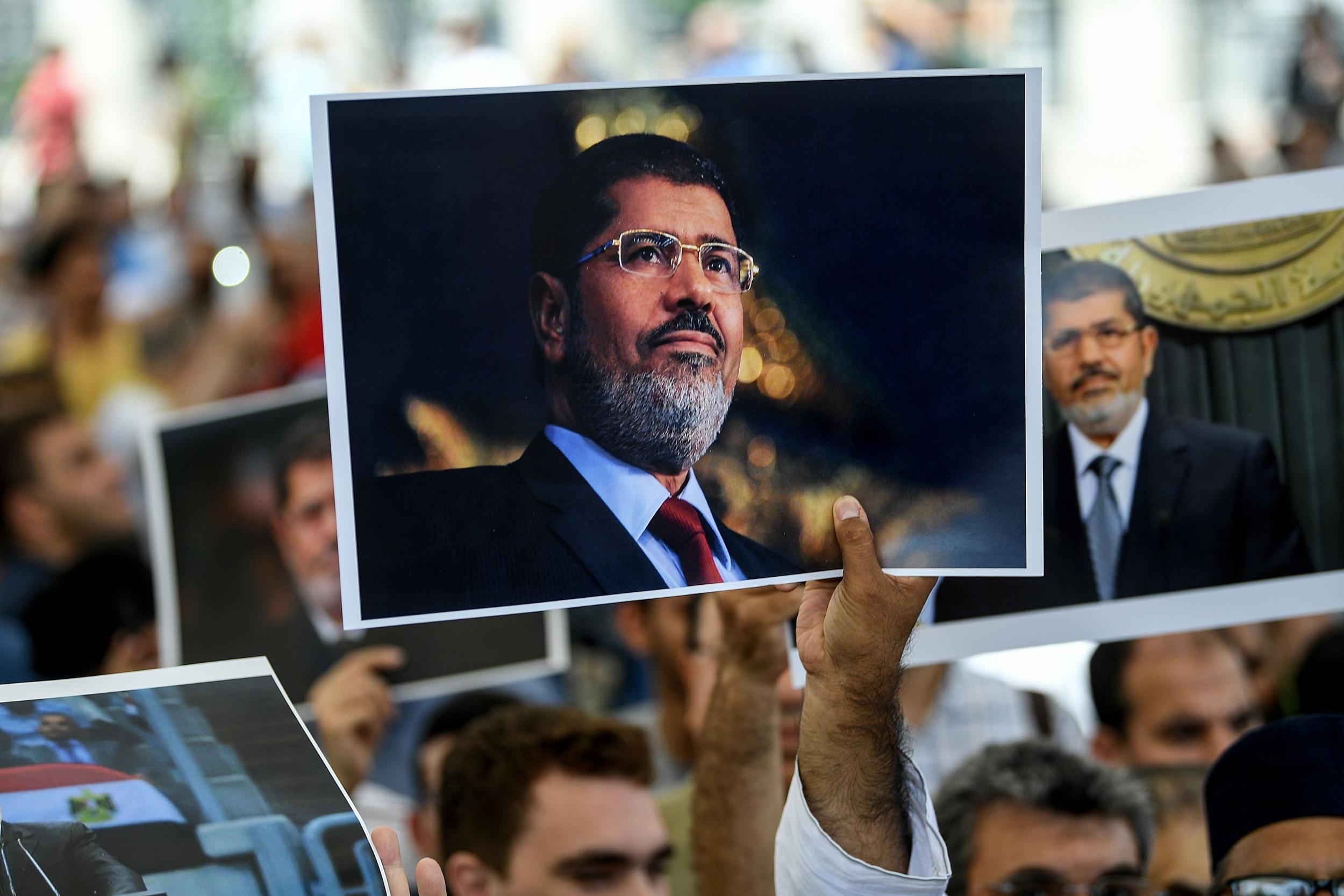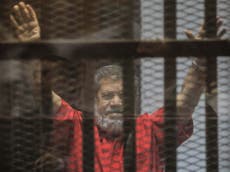Egyptian democracy died yesterday in a prison cage alongside Morsi
To me, when you die in a dictator's prison – even if you are not Egypt's only elected president – then you are, in some sense, murdered


Mohamed Morsi’s death was utterly predictable, truly outrageous and, in my view, arguably a case of murder.
To me, when you die in a dictator’s prison – even if you are not Egypt’s only elected president – then you are, in some sense, murdered. It doesn’t matter if it’s the solitary confinement, the lack of medical treatment or the isolation. It is of no relevance that the court is unfair, the charges frivolous, the sentence mortifying. A prisoner residing in such circumstances awaits death every day, unless the gates open, which they were never going to do for President Mohamed Morsi of Egypt.
I use his official title because a president overthrown in a military coup remains an elected president. Just as the man who staged the coup must now also be called President Abdel-Fattah al-Sisi. The first title represents honour. The second title represents reality.
Morsi won the second round of his presidential vote with just over 51 per cent. Sisi last year scored just over 97 per cent. The figures speak for themselves, do they not? The first represents democracy. The second represents what I can only describe as the infantilisation of Egypt.
In one sense, Egyptian democracy finally died in that Cairo prison cage. No wonder Morsi’s burial was swift and largely secret.
Not that poor old Morsi was himself a romantic figure. His elected presidency – which lasted less than a year – was shambolic, itself corrupted, increasingly brutal and very, very arrogant. The Muslim Brotherhood has always suffered from vanity, which is why it stayed out of the 2011 Egyptian revolution until Mubarak’s fall was certain – and why Morsi himself began talking to the army (his future nemesis) before the violence had ended.
But symbolism counts when the last elected president of a country dies in front of his own judges, in a cage used for felons, denied, according to his son, even a public funeral.
We can imagine the reaction to the family’s request: Morsi was on trial for his life on charges for espionage because he was in contact with Hamas. The fact that it was one of his presidential tasks to organise ceasefires between Hamas and Israel in Gaza, a function which his successor has also dutifully undertaken, is neither here nor there. Field Marshal President Sisi (to give him his two legal titles) will not be tried for espionage because his military policies include the safety of Israel’s southern border.
One can only imagine the reaction of the judges at Morsi’s latest trial when the man elected president in 2012 suddenly collapsed on the floor. To be prepared to sentence the man to the gallows, only to witness the defendant go to meet his maker earlier than planned, must have provoked a unique concentration of judicial minds.
But could they have been surprised? Morsi’s family had long protested his lack of medical treatment. Human rights groups had done the same. He had suffered 23-hours-a-day solitary confinement.
The world’s media and the world’s statesmen, however, largely ignored these denunciations. Morsi was a has-been, his court reappearances a bore. All that was surprising was that he managed to talk – or try to talk – to his judges for five minutes before he departed their jurisdiction forever.
Three family visits in almost six years of solitary, no access to his lawyers, even to a doctor – the evidence suggests that his death must have been hoped for by his jailers, his judges and the one man in Egypt who cannot be contradicted.
Long has Sisi attempted to conflate the Muslim Brotherhood with al-Qaeda, with Isis, with the assailants of Christian churches and Christian lives. If Isis and Hamas and the Brotherhood are all now blamed together for the Islamist uprising in Sinai and the atrocities in Cairo, do we really think there were any expressions of regret among Sisi’s colleagues when word came that the 67-year-old diabetic had conveniently saved the government a hangman’s fees?
And of course there was no public funeral. It’s one thing to use the word “terrorist” about the Brotherhood, quite another to call every man and woman shot down in a funeral terrorists.
Even in Egypt, there are limits. Or are there?

